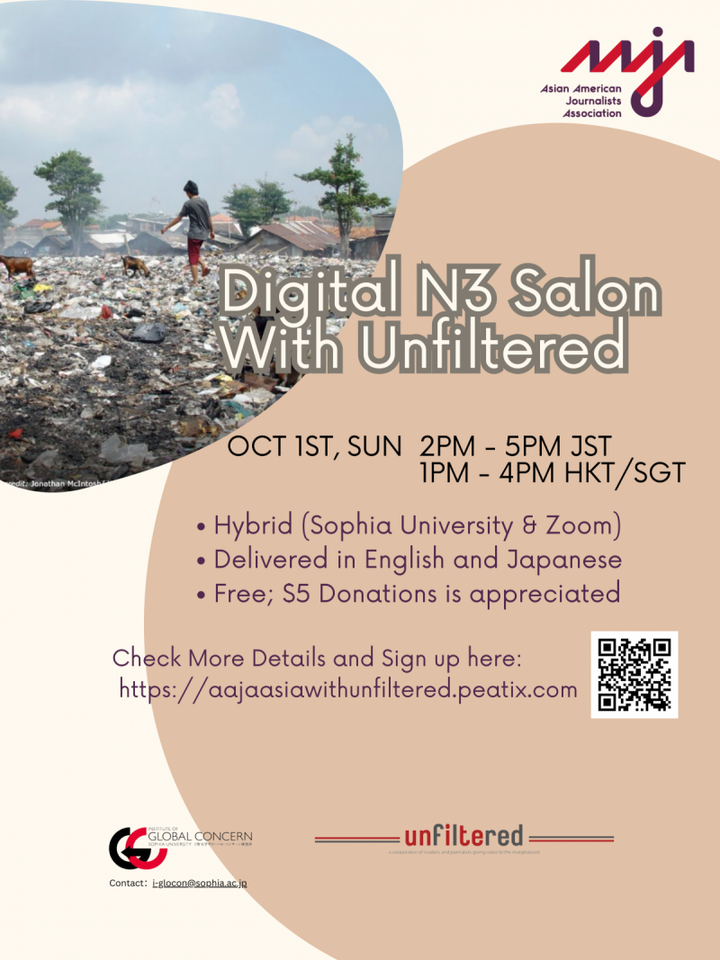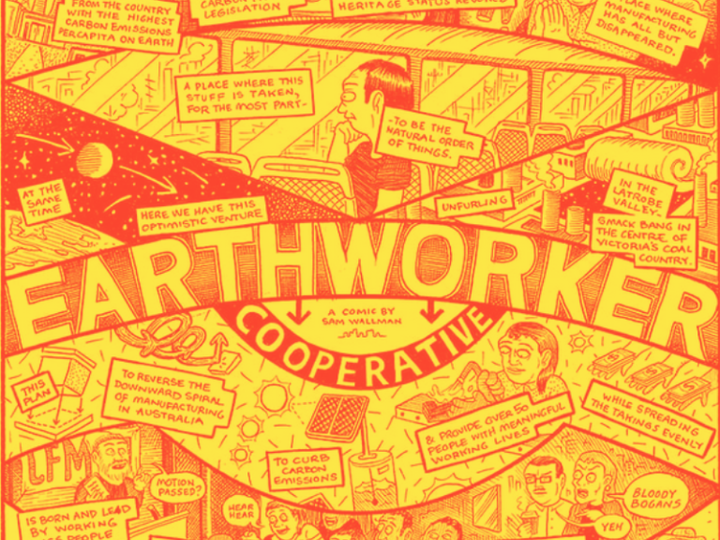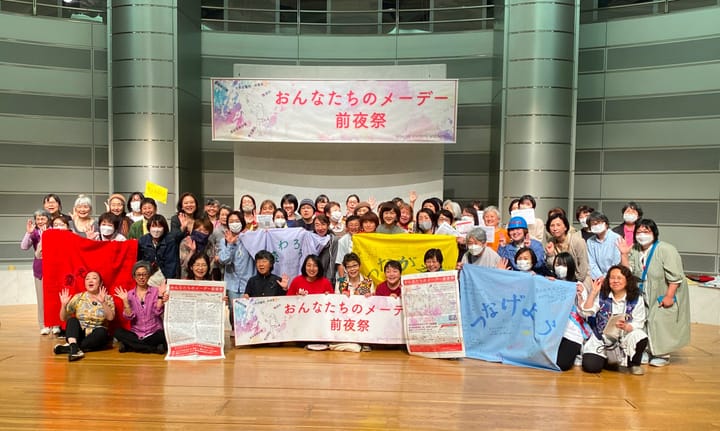Japan's LGBTQ members suffer discrimination, abuse

Legal framework, welfare networks failing to meet needs
Ray Tanaka’s high-pitched giggle is infectious, an endearing mixture of unbridled fun and the timid titter of those who are somehow short on confidence. Yet there are visible hints that the perky 51-year-old has endured many less humorous times. Scars peaking through stubble and closely cropped hair are telltale signs of severe beatings, in Tanaka’s case at the hands of a former partner. While Tanaka’s raggedy goatee is a symbol of masculinity, the trademark giggle is decidedly girlish. In fact, Tanaka identifies as gender queer, or someone who defines their gender as being neither male nor female.
The assaults Tanaka was subjected to were often sparked by the most trivial events. The very first time the abuser threw punches was a direct result of Tanaka rattling the table during dinner with friends. At barely 160 centimeters tall, Tanaka struggled to fight back as the partner kicked down doors, smashed windows, and threw a fit after finding books on domestic violence in the house. “Seeing you read books like this makes me crazy,” Tanaka recalls the partner saying. “One of these days I could end up dead,” Tanaka remembers thinking.
Remaining passive for a year and a half, Tanaka made efforts not to rock the boat. Part of the problem, Tanaka says, is that this kind of abuse is still taken far less seriously than beatings inflicted on women by their male spouses. “You can’t judge a life based on gender,” Tanaka says, sinking deeper into the couch, above which hangs a rainbow-colored balloon. “Victims of domestic abuse are not always heterosexual women. We suffer from it as well.”
In recent years experts have seen an increase in reports of violence between same-sex partners and transgender couples. According to the National Police Agency, there were 63,141 cases of spousal abuse nationwide in 2015, up from 59,072 a year before. About 10 percent of that involved male victims, up from 2.4 percent from 2010.
However, while there are several hotlines for battered heterosexual women, those for victims of various sexual orientation or gender identity are few and far between.Those that do exist are largely ignored, thanks to a stigma that prevents victims among the LGBTQ community from coming forward to discuss their abuse.
 The few nonprofit groups that provide shelter are overwhelmed. Japan has 47 state-run shelters for female victims of domestic violence, one in each prefecture, and 69 private shelters nationwide, a third of which reported having financial difficulties, according to media reports in April. It never crossed Tanaka’s mind to seek help. With acquaintances working on hotlines within the LGBTQ community, Tanaka couldn’t take the risk of having any of them pick up the call.
The few nonprofit groups that provide shelter are overwhelmed. Japan has 47 state-run shelters for female victims of domestic violence, one in each prefecture, and 69 private shelters nationwide, a third of which reported having financial difficulties, according to media reports in April. It never crossed Tanaka’s mind to seek help. With acquaintances working on hotlines within the LGBTQ community, Tanaka couldn’t take the risk of having any of them pick up the call.
“The LGBTQ community is so small that if you know one or two people, everyone will hear your story,” Tanaka says. Tanaka had become adept at maintaining gender anonymity. Tanaka’s parents knew nothing about their child’s sexual transition and when speaking to them over the phone, Tanaka would make excuses about any testosterone-induced voice changes, blaming it on a throat polyp, among other things. “It doesn’t matter whether or not you have come out to your family,” Tanaka says. “If your family doesn’t understand or accept the way you are, you can’t seek shelter at home.”
Violence in LGBTQ relationships largely goes unreported but is quietly rising, experts say. Abuse can be anything from intimidation and threats to “outing” partners’ sexuality or HIV status. In some extreme cases death threats and even homicide have been the chilling outcome. One recent case inthe news was the murder of a transgender man in the Tokyo city of Fussa at the hands of his partner.
In 2011, the government set up a 24-hour hotline to respond specifically to the troubles and concerns of sexual minorities. The toll-free number received nearly 480,000 calls between April 2014 and March 2015, according to the latest report by the Social Inclusion Support Center. However, only about 8 percent got through to the consultants on what was a busy line. The rest remained unanswered. Tokyo and Osaka are among the few regional municipalities that have begun offering telephone counseling specifically for violence in LGBTQ relationships.
In a survey by Tokyo’s Setagaya Ward last year, 9 percent of the 965 LGBTQ respondents said they had experienced domestic abuse; 10.4 percent had been sexually assaulted. A 2015 survey on diversity conducted by advertising agency Dentsu found that 1 in 13 people in Japan, or 7.6 percent of Japan’s 126 million population, is lesbian, gay, bisexual, transsexual or queer/questioning.
Last July, Fukuoka became the first prefecture to open a phone line specifically for abuse in LGBTQ relationships — and for male victims. Although the local government keeps no statistics, it saw a rise in calls from LGBTQ victims reaching out to the hotline for women, an official in charge of the hotline said. “The phone counselors on the general DV hotline were afraid their response may be discriminatory in the eyes of the minority,” he said. In the first nine months, however, it received just a single phone call.
The line is open twice a month, but nonetheless that response still low, which is no surprise to some LGBTQ rights advocators. Gay women or female transgender survivors — being women — often turn for help to hotlines that support women facing domestic violence.
Miho Okada of Rape Crisis Network (RC-NET) urges training for hotline counselors on how to deal with LGBTQ callers — and for the government to work out a suitable response thereafter. “All it takes is one bad response and victims back down and clam up,” Okada says, adding that there is a dearth of shelters to support abused members of the LGBTQ community. “Unless we have a shelter where they can feel secure, we shouldn’t be enticing them to reach out for help.”
Just as Fukuoka counselors feared, desperate callers seeking help on the hotlines have reportedly been refused assistance simply because they still sounded like men over the phone. A lesbian victim was advised to find an alternative to state-run emergency shelters for fear that she may be a sexual threat to other victims. After battling to get heard through busy hotlines, callers often despair at such responses. A few facing immediate threats to their lives brave another phone call and end up reaching civil organizations such as Okada’s RC-NET in the city of Aomori, she says.
Okada says members of the LGBTQ community are extremely cautious when discussing their abuse. Most do not want to risk losing the few safe havens they have. Having common friends and acquaintances is fine until one brings up the all-too-serious reality of partnership violence. It is often the abused in such cases who are deprived of whatever social resources they have. The comparison with women having to run away from their abusive husbands is a stark one, Okada says.
The gender of abusers is a blind spot to social workers. It’s perceived by many that, unlike female victims, LGBTQ victims will often retaliate. When there is no clear evidence of who the initial aggressor is, advocates are often left to assist the side suffering the most harm or that wishes to end the relationship. While support groups in Europe and America train the police on how to determine the perpetrators, Japan has yet to set any guidelines, according to Yuka Kondo at the Queer & Women’s Resource Center in Osaka.
Hotline counselors often assume that a transgender male caller, or someone who is gender queer and taking testosterone such as Tanaka, is the abuser. One male caller reported on the 24-hour hotline that his female partner had tortured him with burning cigarettes, according to supporters. The caller believed he couldn’t escape the relationship because no one else would understand him like she did. He reportedly said, “This is the only place I have.”
In another case, a transgender female who called the hotline for help had recently transitioned to female to subdue the abuse, but to no avail. There is a wide spectrum of sexuality among transgender people: Not everyone wants to undergo sex reassignment surgery; some are content just to have their external appearance match their gender identity.
“When someone physically or mentally obstructs a transgender person from becoming their true self, that is definitely abuse” says Chigusa Oe of LOUD, a group for gay and bisexual women.
In addition to having limited chances to meet people in similar situations, many LGBTQ people feel insecure and rejected by mainstream society, Oe and other supporters say. The offer of help and the chance to move on means they do not have to endure violent relationships. Among those Oe has helped is an abused gay man who drifted from one private shelter to another. When he ran out of money, he finally reached out to the 24-hour hotline. He gave up on the police due to their lack of understanding and he didn’t want to relive the abuse by telling another counselor about his experience. “Abused men often face a lack of understanding from the police, who often doubt there ever was any violence,” Oe says.
Although Japan passed the Act on the Prevention of Spousal Violence and the Protection of Victims in 2001, the police have been slow to answer pleas for help. In terms of responding to sexual minority victims, police are grossly under-trained, lawyers and supporters say. Police have allegedly told transgender or gay victims to “man up” and fight back, or put up with the violence and wait for it to pass. Men are sometimes bound by stereotype and believe it is shameful and weak to seek help. In cases involving violence among lesbian couples, police would try and convince the two partners to reconcile by telling them that “women can talk it over.”
“We need just one word, ‘protection,’” Kondo says. “No matter what gender you are, you have to tell the police you want protection and have no intention of reconciling with your abuser. Otherwise, they will try to send you back to your abuser.” Japan is the only Group of Seven member nations that has no legislation addressing discrimination based on sexual orientation and gender identity, or an independent body to redress human rights violations.
Conversely, the United States has well-funded LGBTQ support groups that lobby to change the law. There are also shelters catering to specific needs of each minority community, such as LGBTQ, teen mothers and other ethnic minorities. In April, the first registered shelter opened in Arkansas for male domestic violence victims. In Japan, arrests for domestic violence have increased fivefold in the past decade, but the number of abused victims the government sends to private shelters has been declining year on year. Public funding is also falling, says Keiko Kondo of the National Women’s Shelter Network.
In emergencies, women can stay at public shelters for up to two weeks, during which time they must find an apartment, apply for social welfare if necessary and take care of other business. The shelters may accept members of the LGBTQ community who have been abused, but complications exist. Transgender females may or may not be accepted, depending on subjective staff decisions relating to their physical appearance. Men, or those who have a masculine appearance, are sent to state-run homeless shelters. For those who suffered violence from other men, the group accommodation is far from a relief.
Kondo has seen the victims of abuse expand in recent years to include the elderly, younger women and children. In every classification there are sexual minorities, and their cases of abuse are often kept secret. The domestic violence prevention act of 2001 does not specify gender and it stipulates that violence must occur between spouses. Since Japan has not legally approved same-sex marriage, the police don’t even have a separate domestic violence log for sexual minority couples.
A landmark district court ruling in Kyushu in 2007, however, issued a protection order to a woman plaintiff who suffered violence from her same-sex partner. According to media reports, the court recognized the domestic partnership of two women even though they were not legally married. In 2015, the government issued a guideline stating that public shelters should take any individual victim of domestic abuse regardless of gender, sexual orientation, sexual identity, nationality or disabilities. Kondo calls it a “revolutionary” move.
“It’s a big step into revising the law for the better,” Kondo says. Lawyers, the National Women’s Shelter Network and other support groups are preparing to challenge the fourth amendment of the 2001 legislation in the coming years to ensure that protection is extended to victims of any gender and to penalize abusers. Despite a shortage of funds that threatens private shelters, Kondo remains optimistic about building better support for sexual minority victims, provided they work together.
But after so much discrimination and prejudice, many members of the LGBTQ community fear that claiming abuse will feed into negative public perceptions. As a result, Okada of the RC-NET says the community prefers a “happy campaign” rather than one that dwells on negativity. Minako “Minata” Hara of the All Japan Sexual Minorities Support Network calls the negativity “the minority stress,” a phenomenon that is commonly seen among any minority groups.
“They’ve had to start from minus points, not even zero,” Hara says, adding that they’ve tried hard to be accepted into the mainstream society since they’ve been stomped over and dehumanized. Anything negative would take them right back to where they started, Hara says. “Members of the LGBTQ community have learned about sexuality and overcome distress, unlike their heterosexual counterparts,” Okada of RC-NET says. “It’s time we recognize there is violence in our community and start discussing how to work against it.”
Despite the abuse and subsequent trauma, RayTanaka feels privileged to have friends who have remained loyal, and to have found a mission as an advocate for LGBTQ survivors of partnership violence. “Sometimes the lack of understanding brings you down,” Tanaka says. Stalking by the abusive partner continued for years after Tanaka escaped. Repeated attacks ultimately resulted in brain hemorrhaging and a stroke, which put Tanaka in hospital. As a result, Tanaka was forced to stop taking testosterone. “I’ve finally met friends I can talk to about my experience,” Tanaka says. “Now I want to extend my help to others who are enduring violence and tell them their lives are just as important.”


